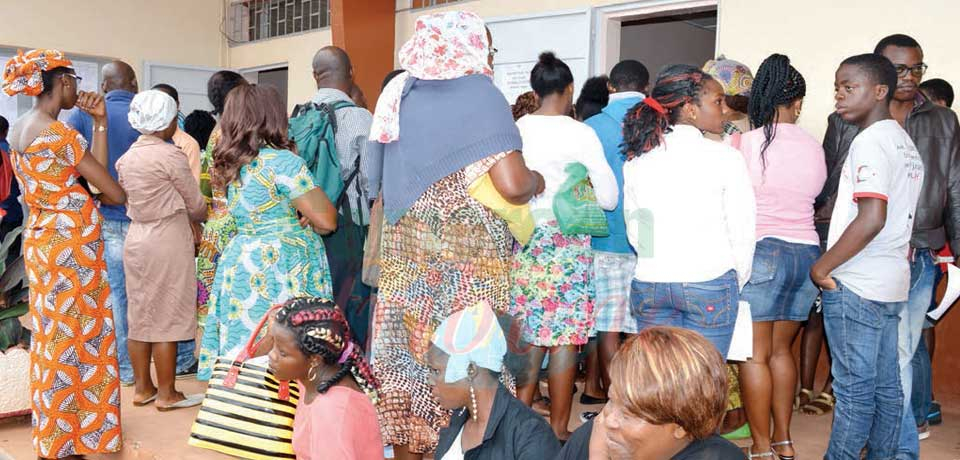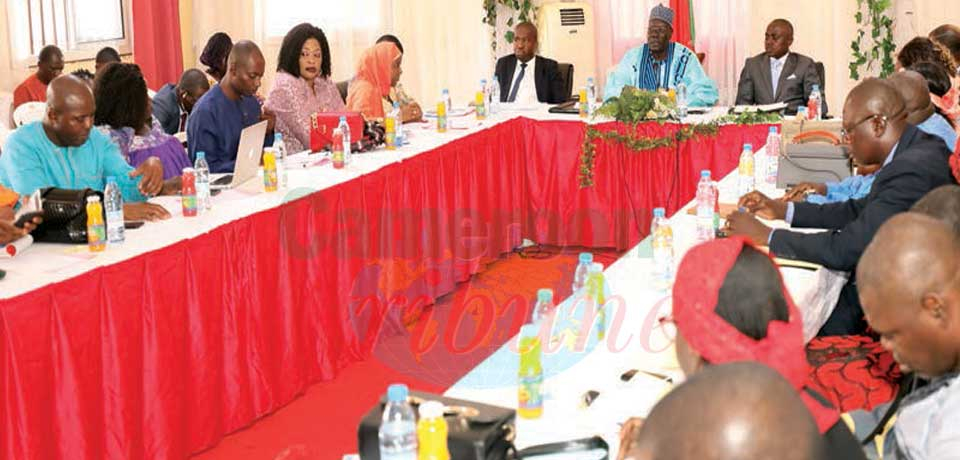Should Widowhood Rites Be Suppressed?
- Par Aureline MELI (Intern)
- 28 mai 2017 23:25
- 0 Likes
There is debate on many societal circles with arguments for and against the suppression of widowhood rites
As society keeps on evolving with globalization being a new mode of life, there is heated argument related to the relevance of many aspects of the culture, especially the African culture. One of such aspects of culture that has sparked a lot of debate depending on the societies is widowhood rites. Simply put, widowhood rites are the rituals and customs that are performed for a woman when her husband dies.
Sociologists and anthropologists consider widowhood rites as part of the ceremonial expressions practiced by humans to mark significant transitions in the status of individuals and groups participating within a community. Supporters of the rites present advantages of such as the traditional end of a marital relationship between the surviving wife and her deceased husband. This would enable the woman re-marry and the ghost or spirit of her late husband would not haunt her. They say society therefore organizes widowhood rites to permit the widow enter another social dimension without suppression from either blood or affinal relations. This is because societies do not have established timelines for remarriage after the death of a partner, meaning that it is only the widowhood rite that can propel a woman into another social status either lesser or greater than the former. Widowhood rites, many argue, have psychological healing effects. Traditional methods, grounded within the ecological niche are deployed in successful healing of grief related psychological stress.
Despite the plausible arguments put up by defenders of widowhood rites, the negative effects of the culture are pushing more and more people to advocate for its suppression. Moderate people say the rites should be modified and those negative aspects be completely wiped out. Cameroon’s Penal Code touches on the sanctions to be meted out on violators of the rights of widows. In many traditions the practice of forced marriage of the widow to the relatives of her deceased husband is rampant. This is because the woman is considered a family property with no right to choice. Some widows are usually accused of being the cause of their husbands’ deaths. In many cases, the widow and her children are deprived of all property and in some rare occasions chased away from the family house.
In debate that follows, there are points in favour of widowhood rites, those against the rites warranting suppression of the rights and people who feel that the rites should be maintained but their dehumanizing, humiliating and discriminatory aspects should be wiped out. The practice has some benefits to cultural stakeholders and those to whom the rites are performed thereby necessitating change to match certain pathological emergence.
Pour
Dr Ibrahim Moubarack Moctar: « Il faut toiletter nos us et coutumes»
Islamologue, président de l’Union islamique du Cameroun
« Les rites de veuvage, tels que nous les pratiquons dans notre environnement, sont une atteinte grave aux droits de l’Homme, à la dignité humaine. Il faut véritablement toiletter nos us et coutumes et laisser s’exprimer des cultures qui sont porteuses de valeurs pour la femme. Car, on ne peut pas comprendre qu’au moment où une femme (ou un homme) est éprouvé, parce que ayant perdu un partenaire de vie, des personnes se mobilisent, au lieu de l’assister, pour lui infliger les pires traitements. Au nom de quelle valeur culturelle ou traditionnelle doit-on imposer à une femme d’aller se laver à 5h du matin au marigot ou au milieu de la cour ? De dormir à même le sol pendant 40 jours ? De se raser complétement ? Ou alors, d’épouser son beau-frère ? Non ! Je crois qu’il est urgent que le combat pour la suppression des rites de veuvage se poursuive.
Toute culture qui ne promeut pas l’épanouissement de l’Homme, qui ne consolide pas la noble nature humaine, n’est pas digne de considération. Et en la matière, les rites de veuvage observés dans nos sociétés sont foncièrement dévalorisants. La femme a une place dans nos cultures. Elle en a une de plus considérable dans nos croyances. Toutes les religions révélées garantissent un épanouissement de la femme et appellent plutôt à une assistance soutenue de celle-ci, en cas de malheur. Car, en ce moment, elle est déjà assez vulnérable pour ne pas subir d’autres peines souvent fondées sur la mauvaise foi des uns et des autres. Nos cultures et traditions doivent être humanisées. Nos pratiques ancestrales, revues et corrigées, en vue de leur adaptation à un monde où les droits humains sont de plus en plus promus ».
Contre
&nb...
Cet article complet est réservé aux abonnés
Déjà abonné ? Identifiez-vous >
Accédez en illimité à Cameroon Tribune Digital à partir de 26250 FCFA
Je M'abonne1 minute suffit pour vous abonner à Cameroon Tribune Digital !
- Votre numéro spécial cameroon-tribune en version numérique
- Des encarts
- Des appels d'offres exclusives
- D'avant-première (accès 24h avant la publication)
- Des éditions consultables sur tous supports (smartphone, tablettes, PC)
Reactions
De la meme catégorie
Immatriculation dans les enseignements secondaires : encore des retardataires
- 09 janv. 2025 11:55
- 0 likes














Commentaires